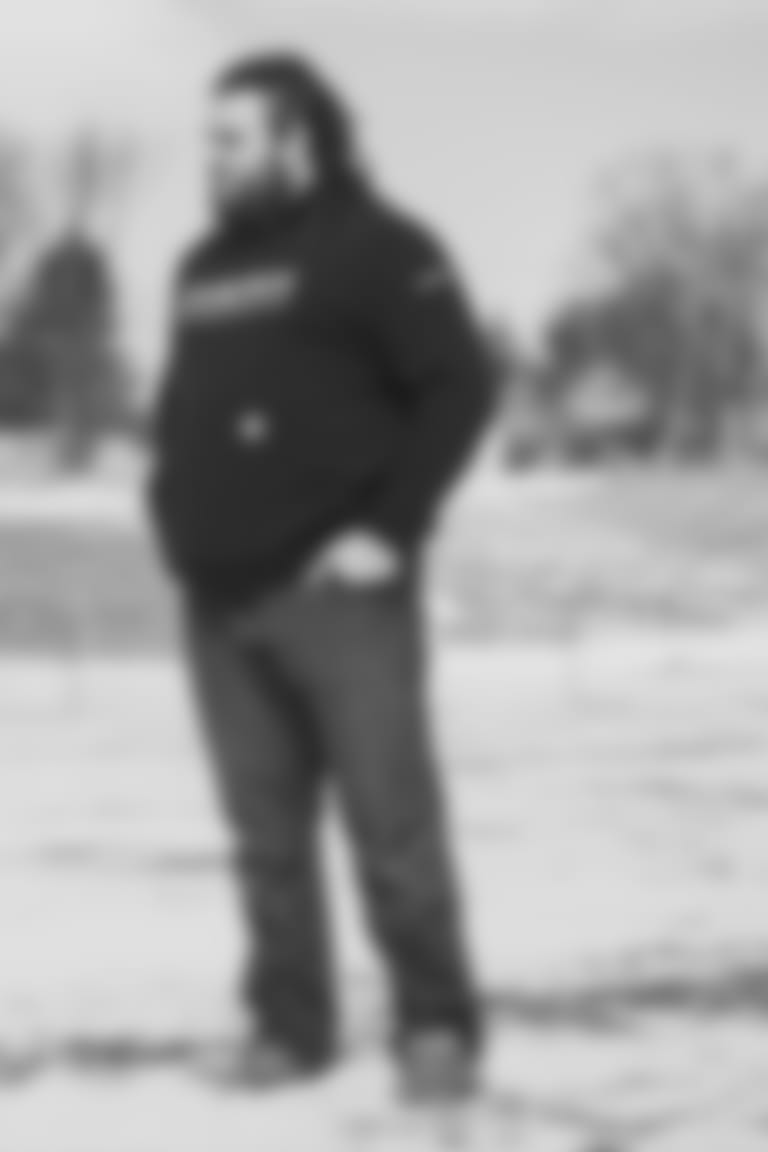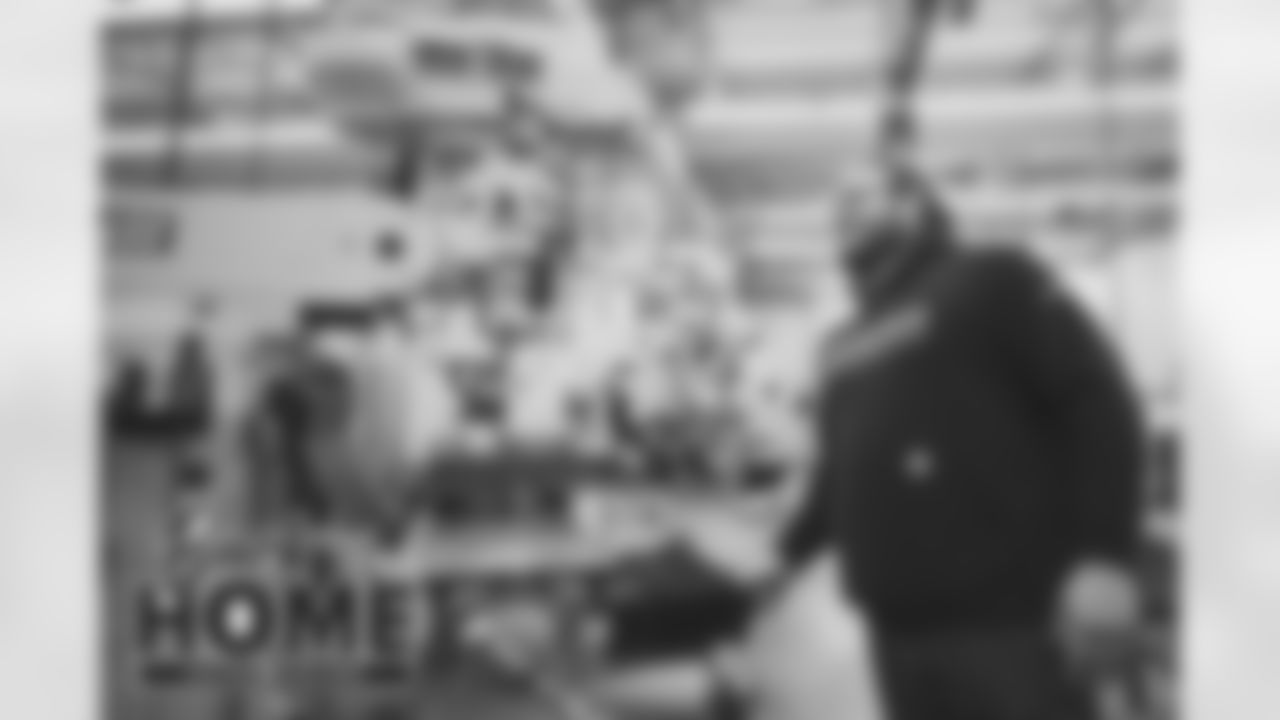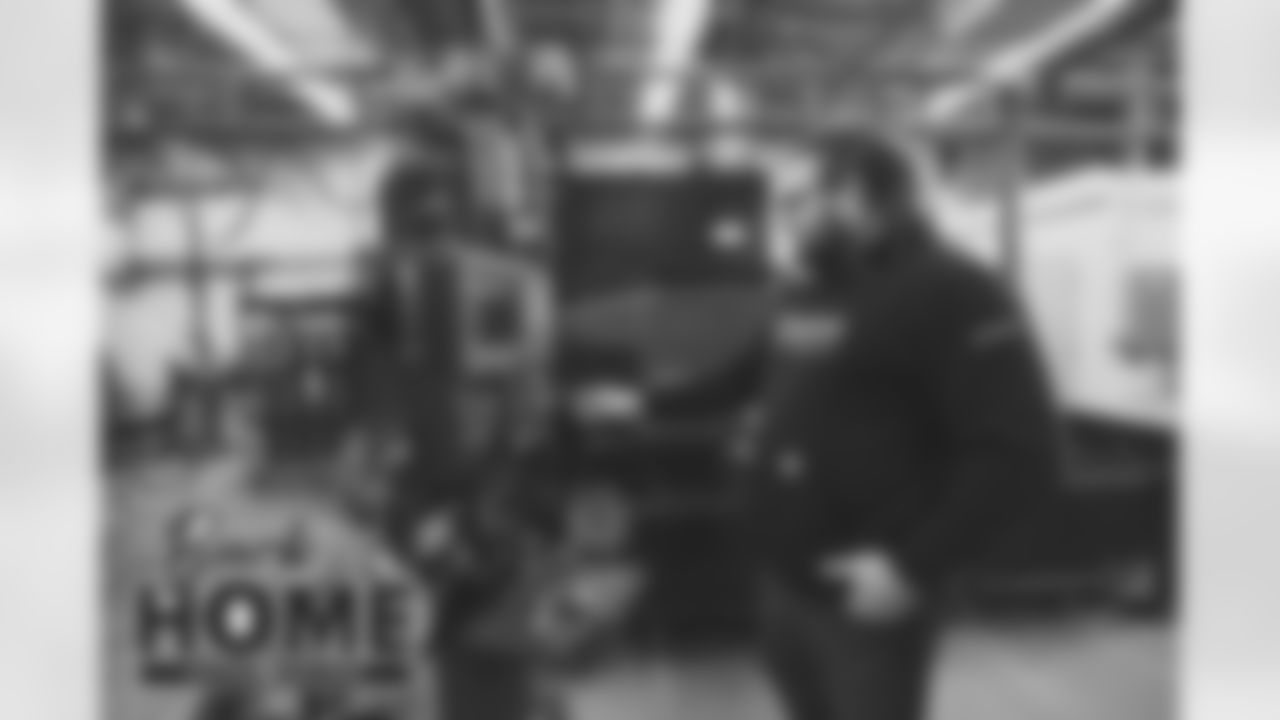Editor's note: This article is optimized for full-screen viewing on desktop computers or on mobile devices.
Quinn Meinerz's resume is full of dirty jobs.
As a 15-year-old, Meinerz spent nights and weekends beneath the artificial lights in the back of the Ponderosa Steakhouse on East Sumner Street not far from his home in Hartford, Wisconsin, scrubbing dried bits of food from plates and cookware. The kind of work wasn't very fun, and being stuck indoors for most of his weekends ate at him.
His second job was better. A farm on the edge of town was looking for an extra farmhand, and he was happy enough to work outdoors and wear cutoffs. There were some not-so-fun parts, like picking rocks, but he largely enjoyed the work. The main problem was that it didn't provide enough consistent work.
Job No. 3 was outside too, thankfully. His technology and engineering teacher told him a construction company was looking for "a big, strong guy," and if he was interested, he could put them in contact. Meinerz, who was about 300 pounds in high school, felt it would be a natural fit.
"I was like, Hey, I'm a big, strong guy!" Meinerz says. "And construction stuff is outside. Let's see what it's about."
Meinerz handled mostly menial tasks — setting up tools at job sites, removing debris during demolition work and moving liquid concrete from the truck to, say, where the new patio was going in at someone's home.
The concrete work could be some of the most dangerous work, both physically and financially. If it tipped over, not only could the weight of the wheelbarrow shatter a metatarsal bone in your foot or your ankle, but there also was an informal understanding that whoever dropped it had to pay for a case of beer for the crew. In particular, that side of the high stakes sometimes encouraged some gamesmanship. Instead of leaving a few inches between the concrete and the top of the wheelbarrow, the driver once filled it to the very top, hoping to get some free beer out of it and maybe see just how strong this kid was.
"I'm trying to move this wheelbarrow through wire, rebar and all these other things," Meinerz says. "So when I went to go lift it to go move it, it just started tipping. And usually when it tips, you get out of the way, because the main thing that can happen is it'll swing down and break your ankle. … They started laughing, as it started … slowly tipping, because I was trying to stop it. They were all laughing and then I just got mad because they were laughing, and I knew what the result was if I [dropped it]. … And so I grabbed it and I managed to lift it back up. And they all just looked at me with wide eyes."
He and his dad later estimated that a construction wheelbarrow full of liquid concrete could weigh about 400 pounds.
"They said they'd never seen anybody do that," Meinerz says. "Even the truck driver. Everybody was like stunned. I pulled the wheelbarrow over and dumped it and I told them, Eff you guys for thinking I'm paying for a case of beer, and everybody started laughing."
About five years later, Meinerz has yet another dirty job. They pay is much better and the work is more challenging, but it fits him all the same. As an offensive lineman for the Broncos, he fights in the trenches, helping create even the slightest daylight for running backs and keeping pass rushers at bay for every crucial second necessary for the quarterback to survey the field.
It's the kind of work Meinerz has always wanted to do, and growing up in Hartford, Wisconsin, it's what he was made for.
"Quinn didn't grow up on a farm, but that work ethic is in our community, very strong," Meinerz's high school coach, John Redders, says. "They pride themselves on how hard they can work, and that is Quinn, 100 percent. He always wanted to better himself and better other people wherever he had a chance to do that."
That, in essence, is "the mantra of this area," Meinerz says — one that he also abides. "We pride ourselves in working very hard."


























































